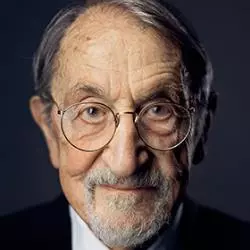
Martin Karplus
Martin Karplus was born in Vienna, Austria, and moved with his parents and brother to the United States in 1938. He was an undergraduate at Harvard College and went to the California Institute of Technology, where he received his PhD in Chemistry under Linus Pauling in 1953. He spent two years as a postdoctoral fellow in Oxford, England, before returning to the USA to join the faculty at the University of Illinois. In 1966 he became Professor of Chemistry at Harvard University, where he continues to do research. In 1996, he also became Profeseur Conventionné at the Université Louis Pasteur. He and his wife, Marci, divide their time between Cambridge, Massachusetts, and Strasbourg, France. He is a member of the National Academy of Sciences, the American Academy of Arts & Sciences, and a foreign member of the Netherlands Academy of Arts & Sciences and the Royal Society of London.
The research of Professor Martin Karplus and his group is directed toward understanding the electronic structure, geometry, and dynamics of molecules of chemical and biological interest. In each study a problem that needs to be solved is isolated and the methods required are developed and applied. In recent years, techniques of ab initio and semi-empirical quantum mechanics, theoretical and computational statistical mechanics, classical and quantum dynamics as well as other approaches, including experimental NMR, have been used.
Solution Dynamics and Thermodynamics
The availability of a deeper understanding of the statistical mechanics of liquids and the development of molecular dynamics and Monte Carlo simulation techniques make it possible to attempt a microscopic (first principles) approach to a variety of problems in the chemistry of solutions. Under study are the conformational equilibria of biopolymers, cage effects in reaction dynamics, and the spectra of molecules in solution.
Protein and Nucleic Acids
These biopolymers play an essential role in living systems. The applications of molecular and harmonic dynamics techniques have delineated the time scales and magnitudes of the fluctuations that occur and have indicated their functional importance. Free energy simulations make it possible to determine the effects of mutations on function and stability. Methods are now being used to study enzyme reactions at the same level of detail as is available from the theory of gas phase reactions. A recent field of research is concerned with the study of biomolecular motors, such as myosin.
Publications on :
http://faculty.chemistry.harvard.edu/martin-karplus/publications?page=2
No items yet!
No items yet!
No items yet!